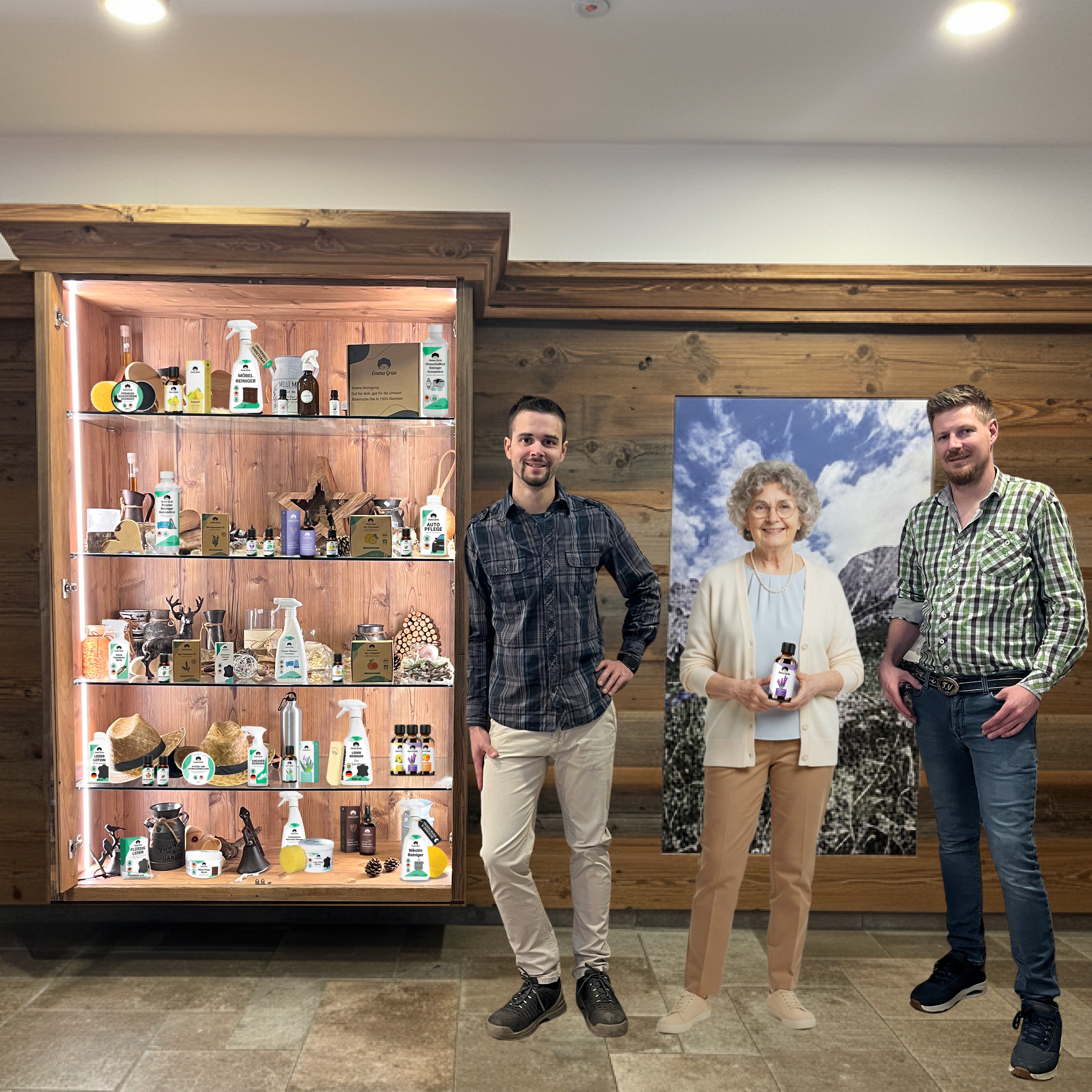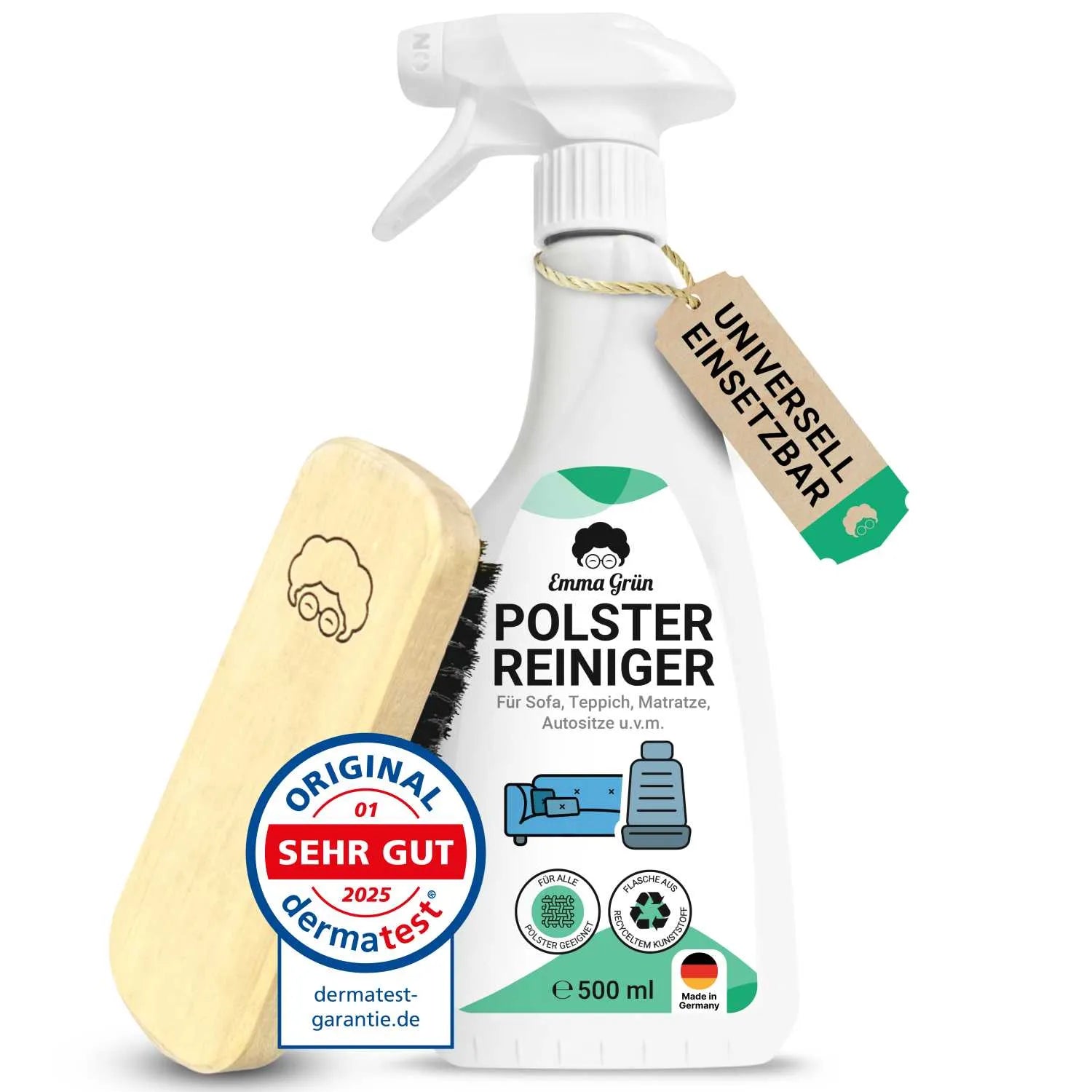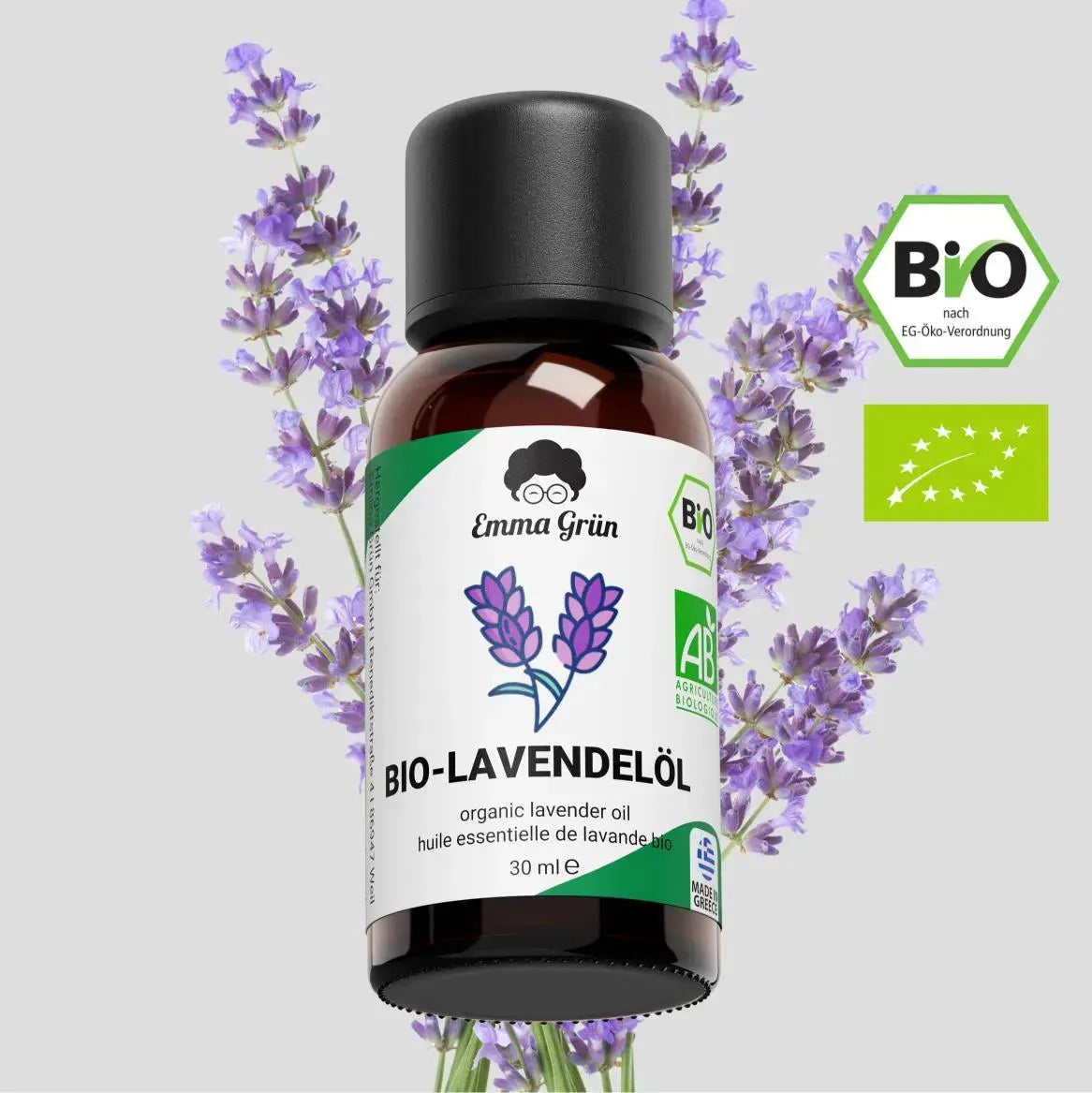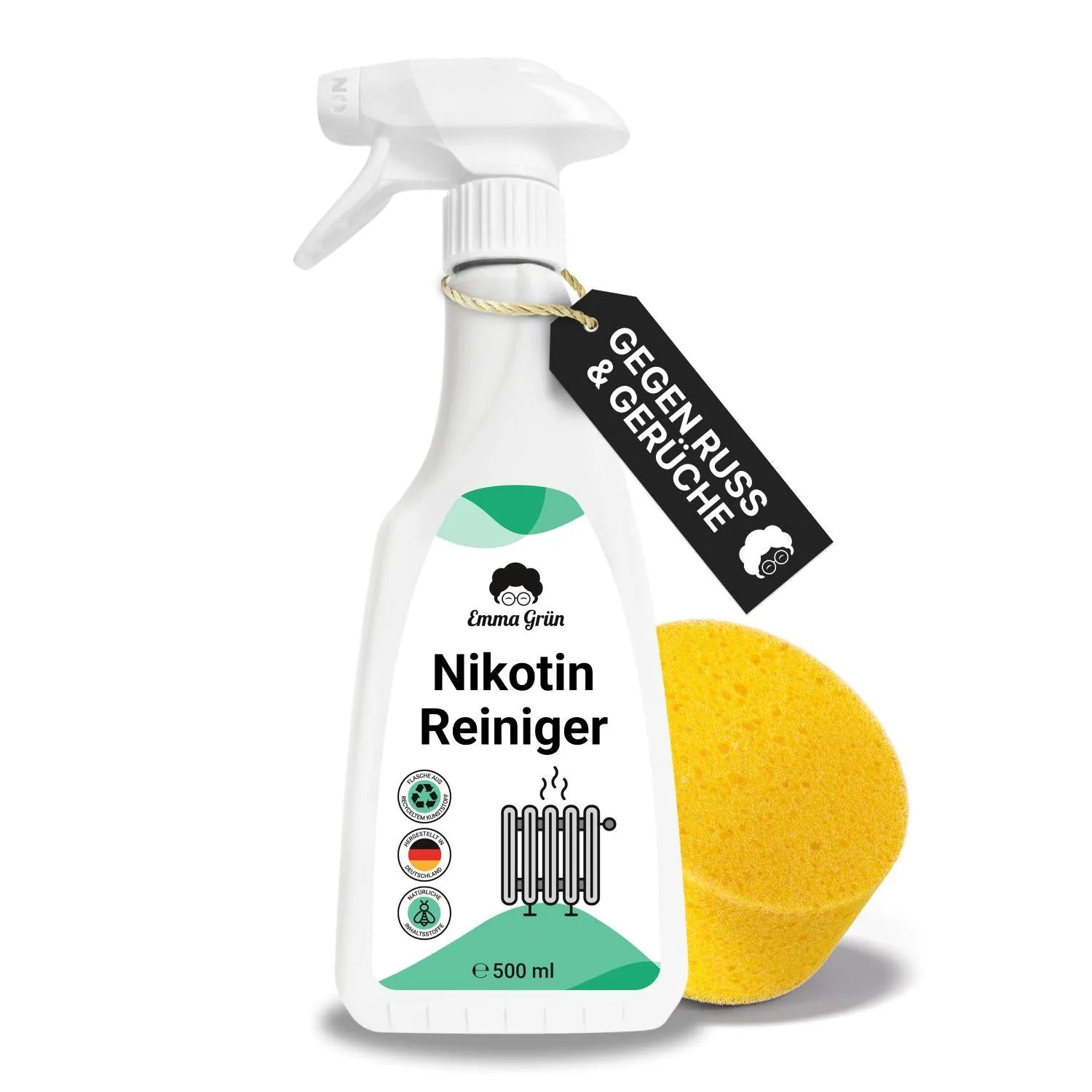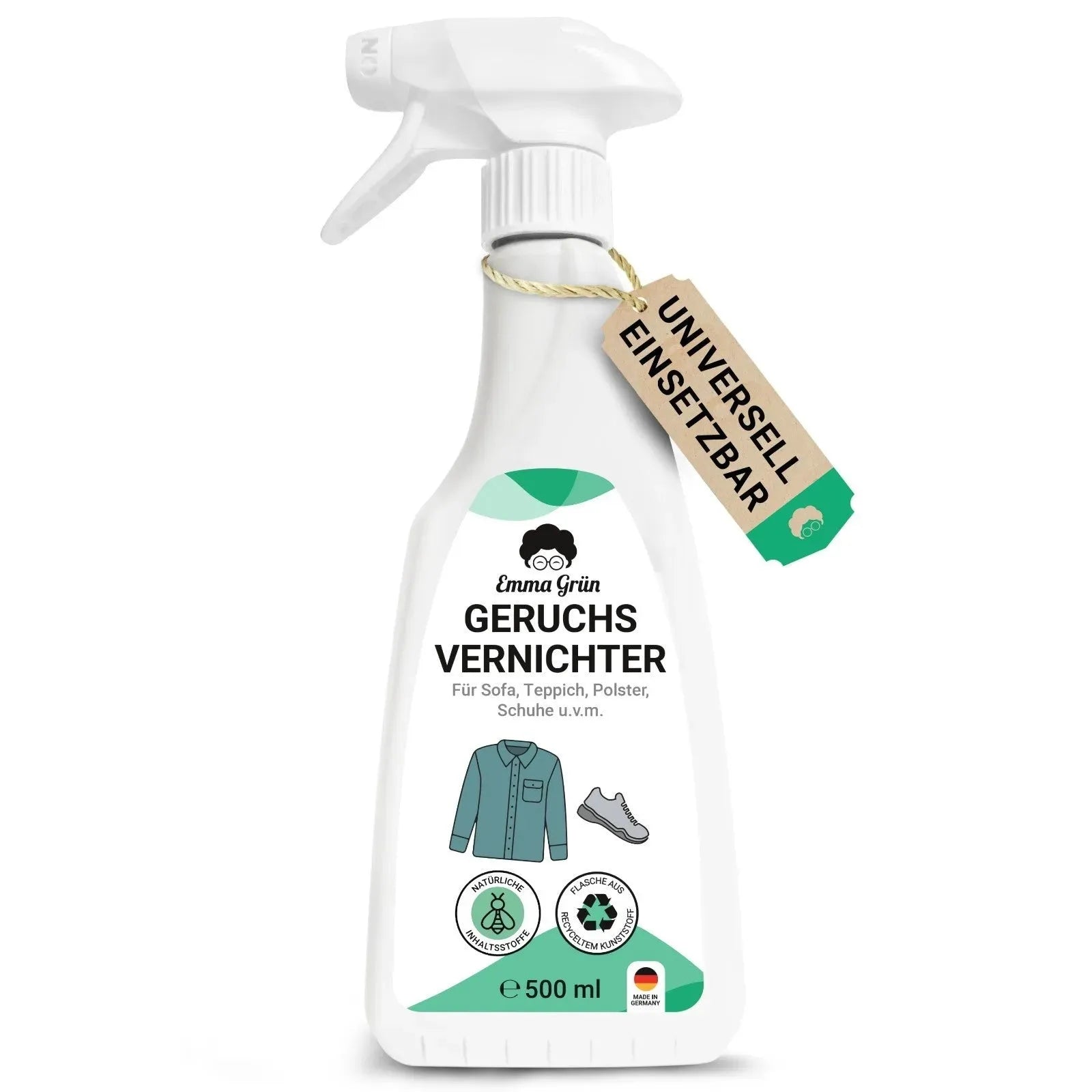Leather damage occurs in many different ways: some of it is caused by carelessness. For example, the leather has a burn hole or is torn. But external influences such as heat, cold, moisture and UV light also damage leather and make it dry and brittle, so that in the worst case scenario it can hardly be repaired.
Now, we can't really do anything in advance to prevent an accident. But don't worry: If the leather has been damaged by a burn hole or a sharp object, the optical defect can be repaired with theEmma Green Liquid Leather Repair Kitconceal wonderfully.
However, we can take action in advance to counteract the effects of harmful environmental influences. Even though leather is naturally extremely durable, it dries out and becomes brittle without the right care. The result: unsightly cracks. Find out now why leather becomes brittle and how you can prevent this.
Why does leather become brittle?
Real leather is an organic raw material and is made from animal skin. In order to turn a perishable product into a durable, hard-wearing and supple material, the natural product must be treated accordingly using different manufacturing processes. The type of leather and the tanning used influence the later properties of the natural material. This becomes obvious when you take a closer look at the different types of leather. It quickly becomes apparent that some are more sensitive to external influences and others are more robust. However, they all have one thing in common: to avoid becoming brittle and to remain beautiful in the long term, they need the right care. This also applies to artificial leather.
How to care for artificial leather properly: What you should pay attention to!
The care of artificial leather is divided into two processes:
- Regular cleaning:Stains on artificial leather are removed immediately. The material is wiped with a dry cloth at regular intervals.
- Deep cleansing:Two to three times a year, you should give the artificial leather a deep clean. This means that the material is thoroughly cleaned and then treated with an artificial leather care product.
What should you consider when regularly cleaning artificial leather?
Families with children or dog and cat owners are particularly familiar with situations like this: the sofa surface was just free of dirt and stains. But as soon as the little ones with their sticky hands or the cute furry friends with their dirty paws start romping on the couch, things unfortunately look completely different.
This is not a problem on artificial leather and the problem is solved in no time. If you always remove the stains immediately, dirt particles cannot settle in the material. All you need is a damp cloth or a soft sponge and a mild cleaner such as the sustainableUniversal leather cleaner from Emma GrünIt removes dirt powerfully and is gentle on the leather. Good tip: Make sure that you don't just rub one spot, but rather rub the dirt out.
Furthermore, artificial leather should be cleaned of dust and light dirt at regular intervals. Soft cloths and sponges as well as an appropriate leather cleaning product are the perfect tools for cleaning large areas.
What should you consider when deep cleaning artificial leather?
Artificial leather needs a deep cleaning every now and then, including nourishing care. Depending on the level of wear and tear, a quarterly or half-yearly treatment is advisable. As the name suggests, this removes deep-seated dirt that remains in the material after a superficial cleaning and also provides it with the moisturizing substances that artificial leather needs for a long life.
A mild leather cleaner is suitable for cleaning artificial leather. It is spread over the entire surface of the leather. Then wipe with a soft cloth. Stubborn stains should be treated separately. Always make sure that you do not use aggressive cleaning agents. Because of their ingredients, they not only damage the material, but also the environment.
We also recommend that you use a special care product such as theEmma Green Universal Leather Balmto use. It nourishes natural and artificial leather equally. It is very easy to use: apply a thin layer of the nourishing balm and let it dry. Finally, you can wipe the leather surface with a dry, soft cloth and your sofa will shine with new splendor.
How do you prevent wear and tear on artificial leather?
Of course, it is always better to prevent cracks rather than having to repair them later. The following tips will help you prevent this:
- Avoid direct UV radiation:If artificial leather is exposed to direct sunlight, it can fade sooner or later, depending on the UV resistance of the material. Another problem: the plasticizers it contains dry out in the heat and the material becomes brittle and fragile more quickly.
- Avoid kinks:If you want to store your leather trousers or leather jacket for a longer period of time, then remember: items of clothing made of artificial leather should never be folded! Because if they remain in this folded position for a longer period of time, you will never be able to get the creases out again. A perfect alternative is to roll the items of clothing. Artificial leather products such as bags or shoes that cannot be rolled can be stuffed with newspaper and then stored dust-free.
Leather repair car seats: practically like new thanks to liquid leather!
It is not just clothing or furnishings that are exposed to constant stress and harmful environmental influences. Our car seats made of artificial or real leather can also tell a story about this. That is why it can happen that a small hole or tear appears in the leather of car seats. No question: This is annoying at first. However, if you fix the defect immediately, a larger and costly repair by a specialist can be avoided. TheEmma Green Liquid Leatheras if it were done. The procedure is not rocket science and is the same as for repairs to a sofa.
Also remember that your car seats also need regular cleaning and care.Leather products from Emma Grünare economical, clean your leather and provide it with everything it needs to look beautiful. And all this without any harmful ingredients, but in an environmentally friendly way.
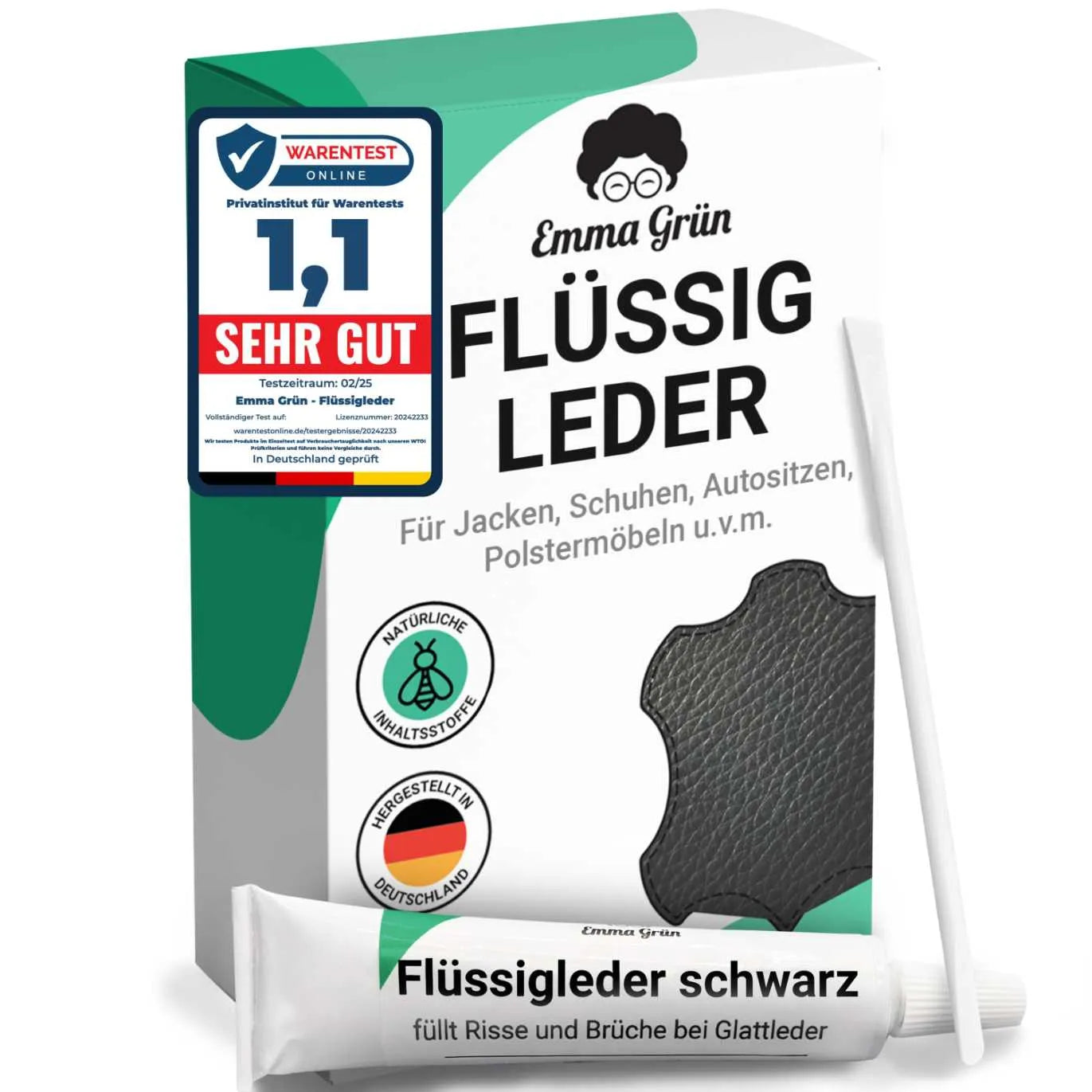














 Natalie,
Natalie,  Sarah und über 205.000+ Andere lieben Emma Grün.
Sarah und über 205.000+ Andere lieben Emma Grün.
















